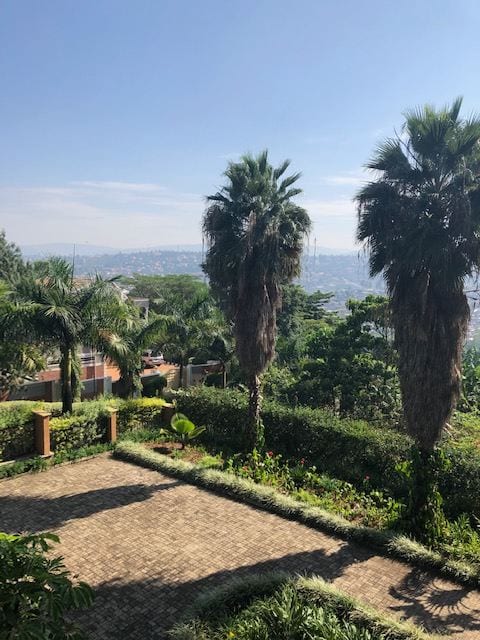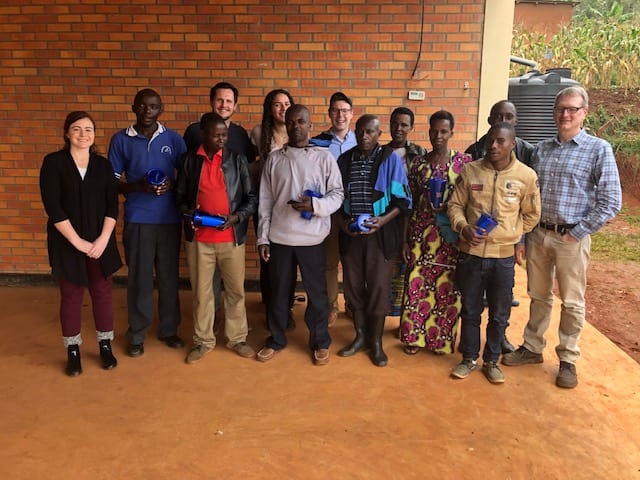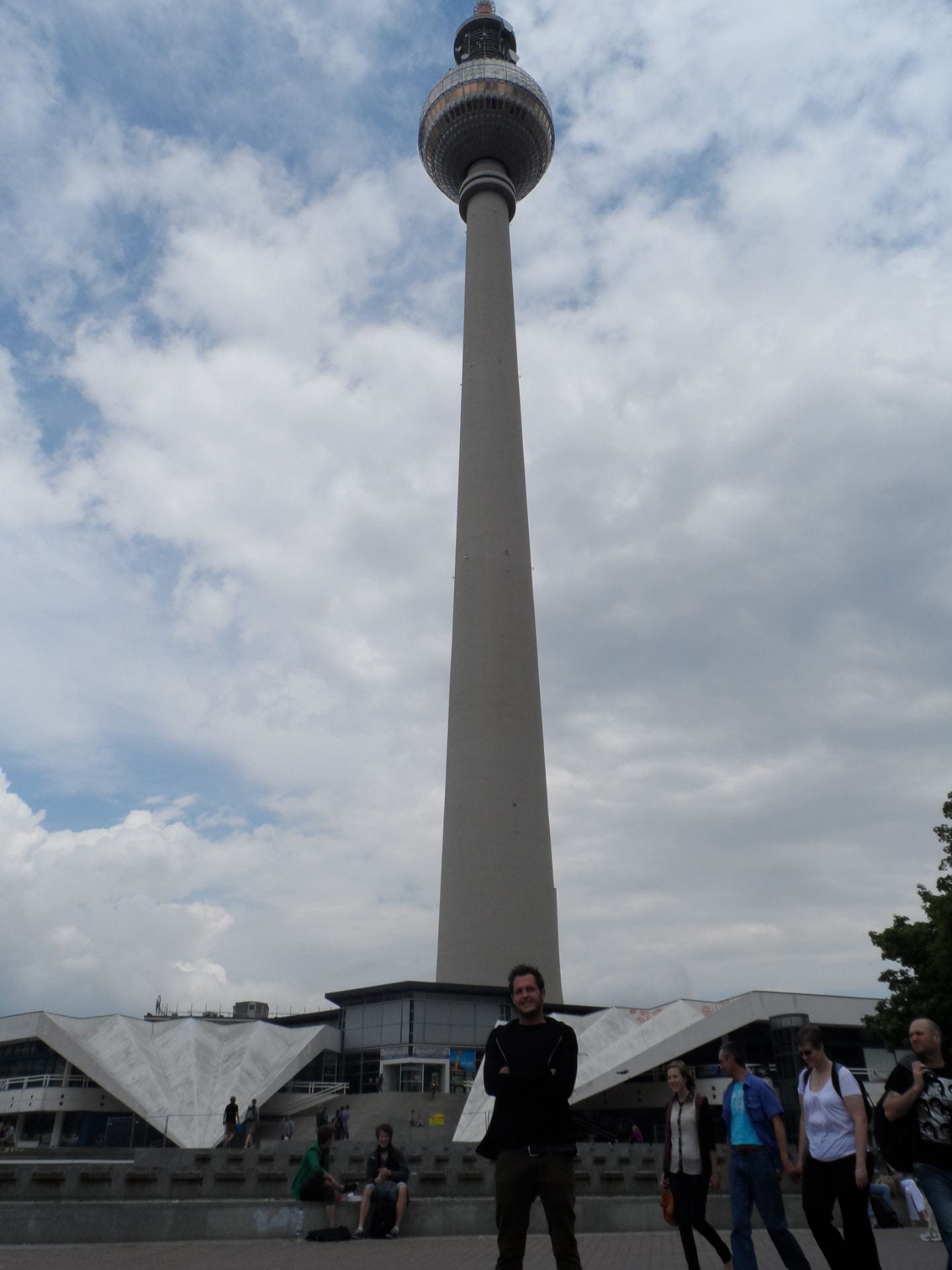Blog post written by Drew Otto, GMBA '20
Vision is essential for long-term planning. You need to know your destination before mapping out the best way to reach it. As a former educator, we called it ‘backwards planning’ and a common message in our consulting classes is to ‘keep the end in mind’. We heard about the country’s prominent vision, Rwanda 2020, at the Ministry of Agriculture, the Development Board, and several organizations in the country. We had a unique perspective observing how Rwanda exemplifies the use of vision to align its stakeholders. And now, talks for Rwanda 2050 are already underway with clear goals.
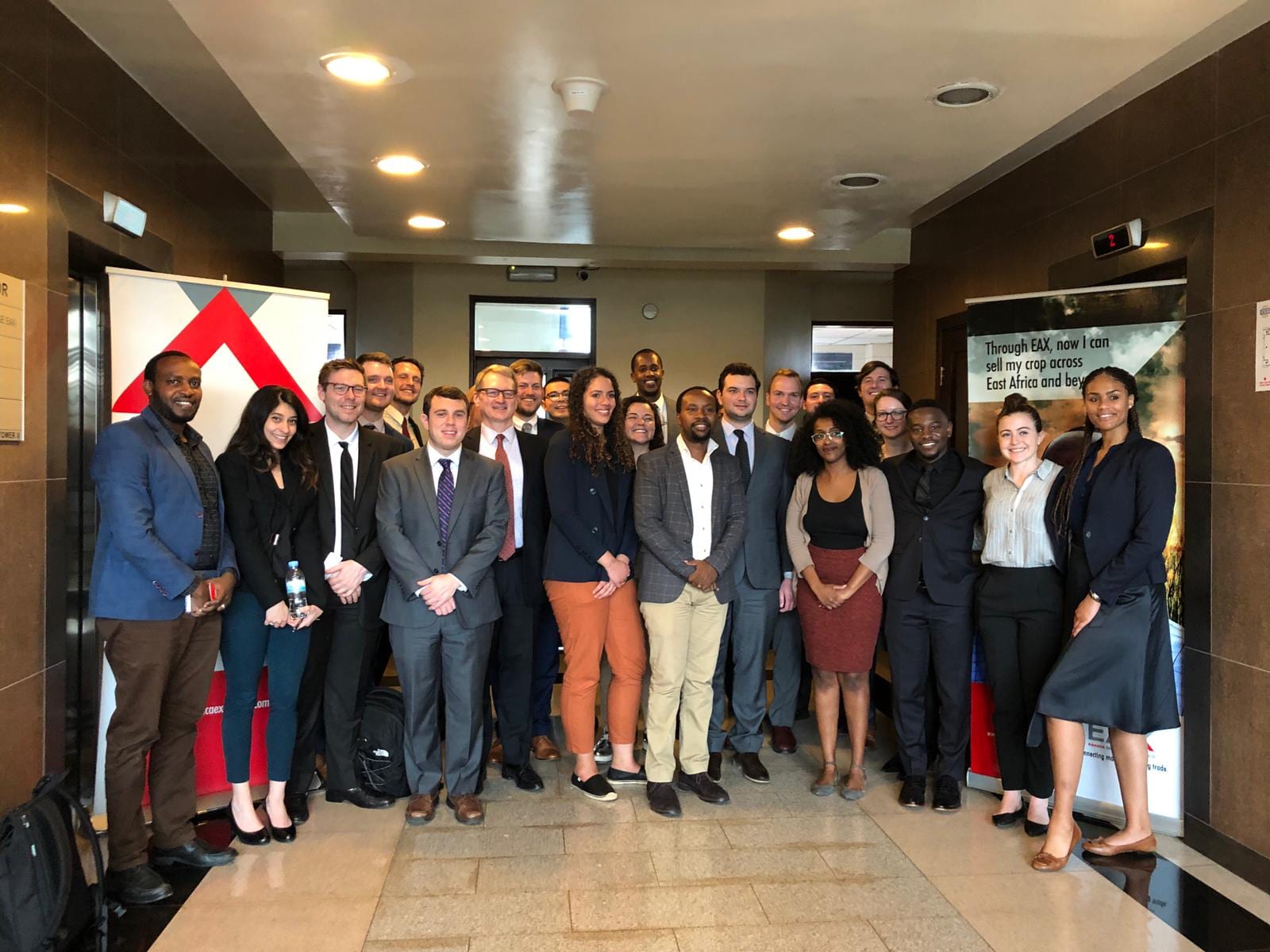
Image 1: Group photo at the East African Exchange (EAX) in Kigali.
I taught my former students to write visions and SMART goals in my 11th grade history classroom. To see these same concepts used at the government level is inspiring and affirming, a reminder that sound reasoning and effective planning are universal for success in all contexts. There is much to celebrate given Rwanda’s growth rate but once removed from the capital city, the dense population in rural areas proved that the country’s vision has not yet been realized everywhere.
Our GW teams visited five cooperatives, each at varying stages of sustainable development. My cooperative framed images of their assets in their office; the truck, mill and barn each an achievement to long-term growth encouraging its annual growth of 30 farmers. But learning about a history of embezzlement with the former board reminded us of our context and the long-lasting effects of corruption and mismanagement. Our project’s focus to assess the financials to determine whether our cooperative is investment-ready required a wider scope into their past and daily operations. Many board members were still learning their roles since the past board’s dissolvement. Making the payment for the past board’s mistakes each month is a feat in an industry where the changing climate constantly creates hurdles.
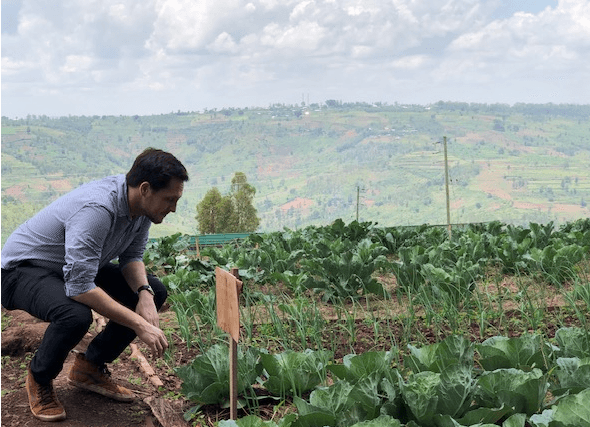
Image 2: Inspecting the student-run grafting fields to help support imported crops (cauliflower) grown locally at the University of Kibungo.
The first-hand experience of bringing my business school knowledge to a small cooperative was a reminder that education is a privilege. As I consider my vision for my own future, the experience in Rwanda has prompted me to always consider the real-world application of what we learn in class. I feel challenged to find a position that creates social and environmental change. The inimitable feeling of having a positive impact for those in need, contributing to the country’s own vision of improving the quality of life for its kind and friendly people, is exceptionally rewarding.
As my team finalizes our deliverables, I hope our memorandum and recommendations will convince investors to fund our cooperative. It will take a while for the government’s vision to truly reach each Rwandan but knowing that foreign investment can promote the well-being of small farmers and others in need is all the more reason for us to continue to explore other countries. I look forward to returning to Rwanda, whether professionally or personally, and challenge myself to envision my future in which I utilize my resources to impact positive change.


